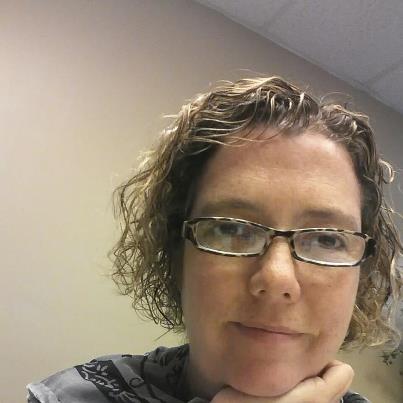WHAT'S NEXT
Anyone interested in learning more about Grove Street Settlement House may meet with Dr. Valerie Radu and organizers at 5:30 p.m. on Tuesdays at Renaissance Presbyterian Church.
A local social worker wants to provide social services to end poverty and strengthen families and communities. She wants to do it without limiting the people she serves or charging them a fee.
And the Chattanooga Housing Authority may help her do it.
Dr. Valerie Radu will meet with housing authority officials this month about leasing the old James A. Henry building to open Grove Street Settlement House, a place that will offer social service programs to anyone who wants help.
Back in 2000, the James A. Henry building was full with literacy programs, computer classes, job training, the Westside Weed and Seed and the Westside Development Corporation. But funding ran out or was cut around the mid-2000s and now the only service provider is Memorial Hospital's health clinic, said the Rev. Leroy Griffith, president of the Westside Community Association.
Now for job training or several other services people have to catch the bus or drive to the Chattanooga Urban League, Griffith said.
Radu said CHA executive director Betsy McCright is offering to lease the building for $1 a year with a 60-day out clause in the event another party wants to lease the building at the going commercial price.
The commercial leasing price is $4.50 per square foot. The building has about 30,000 square feet, said Robert K. Fisher, a commercial real estate agent with KW Commercial.
Eddie Holmes, housing authority board chairman, said nothing has come before the board about the deal, but CHA may consider working with the organization.
"We're willing to negotiate, but we're not the Goodwill," he said. "We have a responsibility to be good stewards of the property."
McCright could not be reached for comment.
If Radu makes the deal, Chattanooga Organized For Action, which recently received a $40,000 Benwood Foundation grant, will have a Social Justice School there, some residents in College Hill Courts will offer a women's support group, and local social workers have volunteered to provide free mental health services. The settlement house also will have a store that offers food, clothes, books and household items.
No service provider will charge for services, nor will they turn anyone away. And everything in the store will be free.
Grove Street Settlement House will seek money from individual contributors, churches and other organizations with a history of social mission and settlement house involvement.
The settlement house will seek funding from local, state and national organizations.
One local foundation has already said it would support the house, Radu said.
She started thinking about the need for a settlement house in 2011 when the sales tax agreement between the city and Hamilton County ended after 45 years, resulting in funding cuts for several social service agencies.
Harriet Tubman Express, the AIM Center and the Children's Home/Chambliss Shelter were among the agencies that sustained funding cuts.
The cuts came a year after a 2010 report by the Brookings Institute listed Chattanooga in the top 10 U.S. metro areas for increases in poverty. The city poverty rate in Chattanooga increased 8 percentage points in 2010, second behind Allentown, Pa., which increased 10 percentage points, Radu stated in an executive summary document written about the proposed Grove Street Settlement House.
Her plan is to offer social services that incorporate people from the community to help solve community problems.
"People will stand in solidarity with the community and figure solutions together," said Radu.
Settlement houses have operated here in the past, supported by churches. The Bethlehem Center in Alton Park supported by the United Methodist Church is a modern example, she said.
Radu did her own settlement house test run on the Westside with the establishment of a free store.
Like the proposed Grove Street Settlement House, no one had to prove they needed to be in the store. If they came to the store, they could shop for what they wanted at no charge. She gathered items for the store by using social media and community contributions to stock it with household items, food and clothes and she operated it for six months with UTC social worker students and social workers in the community.
As she had hoped, Westside residents took it over, started making their own donations and have since been operating the store themselves. The store is located at Renaissance Presbyterian Church and operates from 10 a.m. to 6 p.m. on Saturdays.
Contact staff writer Yolanda Putman at yputman@timesfreepress.com.

